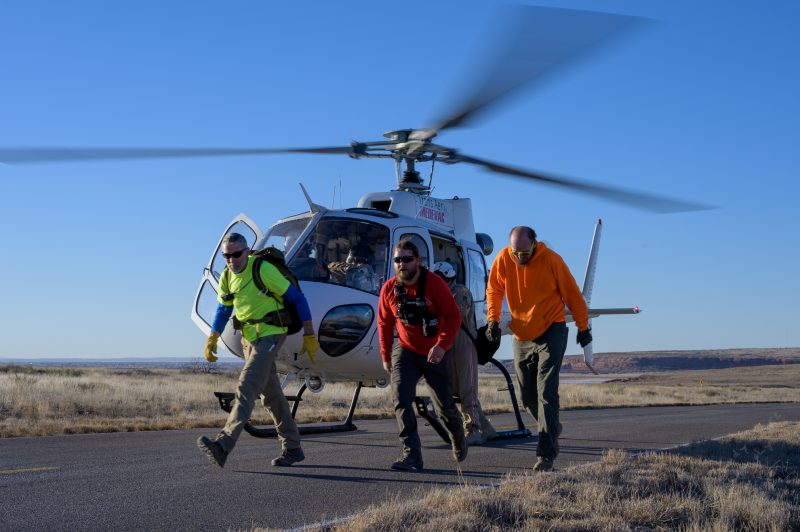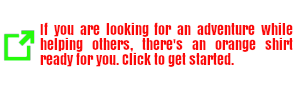Questions And Answers
What exactly is Wilderness Rescue? What do we do? How often do we deploy? Are we law enforcement? Do we get paid? These are among the more common questions we get asked frequently.
So – we created this FAQ to give you some answers.
What exactly do we do? We are a team of highly trained volunteers who are ready to help whenever and wherever or help is requested. We are a non-governmental Wilderness Rescue and a State Of New Mexico licensed EMS agency. We are also part of a coalition of not-for-profit organization in the area providing help to the underserved parts of our community. We have the training, licenses, insurance, equipment, vehicles and tools to get things done – in the wilderness or in our city streets. We also provide a variety of FREE trainings to anyone interested: American Heart Association CPR/AED, Stop The Bleed, uAV/Drone training, GPRS radio information.
What is Wilderness Rescue? Whenever somebody requires assistance in the wilderness, or if a person doesn’t make it home in time, we may be called to assist. If possible, we go out and render assistance. We work as an independent agency and we are not law enforcement or related to any governmental organization. We even respond to requests from the general population. We also provide and monitor the “FindMe” service which assists folks if they want to venture out into the wilderness.
What does the EMS service do? We provide medical standby (trained medical personnel on location) whenever an organizer requests our support. This may be community events (like the “Walk For Hope”), sporting events (like the Sertoma Colt Classic baseball tournament), during crisis (Red Cross shelter after the floods) and in other situations (like the Eastern New Mexico State Fair). We also provide urgent (non-emergency) assistance when requested.
How often do are you going out to help? That very much depends. We have on average 3 to 4 rescue events per year. But our EMS volunteers are pretty busy, supporting the unhoused or other vulnerable folks in the county. They also go on Stand-By during community events or in support of other events. We are always prepared and ready to deploy. In 2024, our agency provided well over 800 volunteer hours to the community. And we continue to stand ready to support our communities whenever our help is requested – as we demonstrated during the Ruidoso Fires and the Roswell Floods.
What kind of equipment do you use? We use modern technologies such as thermal vision, drones, GPS, computers, digital maps and communications, off-road vehicles and, of course, medical equipment. But we also use old fashioned ropes, compass and maps. And we train our members to be able to work with all of that.
Do you need a lot of training? We have several trainings per year. Because we have to be able to deal with any situation we encounter while being out in the wilderness. And our members love to get their hands on gadgets and to try new things. But what is even more important is the team. We rely on each other and we have to trust each other. That means we need to know each other very well. One way to do that is to train together. And to have fun together.
What about physical fitness? There are physical fitness requirements for our responders. That means for those who want to go out and help in the streets or during events. But those requirements are not too arduous and almost anybody should be able to pass with a little bit of preparation. Our auxiliaries do not require physical fitness evaluations.
What do auxiliaries do? Our auxiliaries are the backbone of the outfit and they are as important as the field personnel. Among other things, they support the team on missions, help when the community request assistance, staff the communications posts, help with fund raising, update our web-site, are admins for our Facebook page, design flyers and documentation.
Am I too young (or too old) to join? You must be 18 to join. But there’s no real age limit. We all come to a point where we don’t want or can’t do certain physical things anymore. But not everybody needs to be a ground pounder (going out into the wilderness on foot). We also need drone pilots, communications and computer specialists, ATV and 4×4 drivers. And some of us transition into leadership positions or auxiliary roles.
How much time is required every month? We try to keep limit the time to 12 to 15 hours per month (not counting missions). We have at class room trainings, video courses and hands-on education, and business meetings. Sometimes we have fund raisers or community missions, but we try to balance it in a way that it doesn’t put too much of a strain on individual members.

What’s in it for me? You are not getting paid. What we do is strictly volunteer thing. Everybody has a different reason for volunteering. Some are tired of wasting time watching TV and want to do something more meaningful. Others want to experience a lit bit of real adventure. Some of us just want to be able to help. Or want to learn interesting new things, get back into shape a bit, looking for new friends. Whatever the reason – we do what we do to save lives. And that is the most important part.
Are the volunteers insured? Absolutely. We provide volunteer liability and accident insurance for every volunteer. We provide professional liability insurance for licensed medical providers.
Something else I should know? Being an “orange shirt” requires commitment. Like with every other first responder job, the team must be able to rely you. You need to put in the training, get the certifications, show up on missions. Everything else we can help you with.
Wilderness Rescue is strictly a volunt
